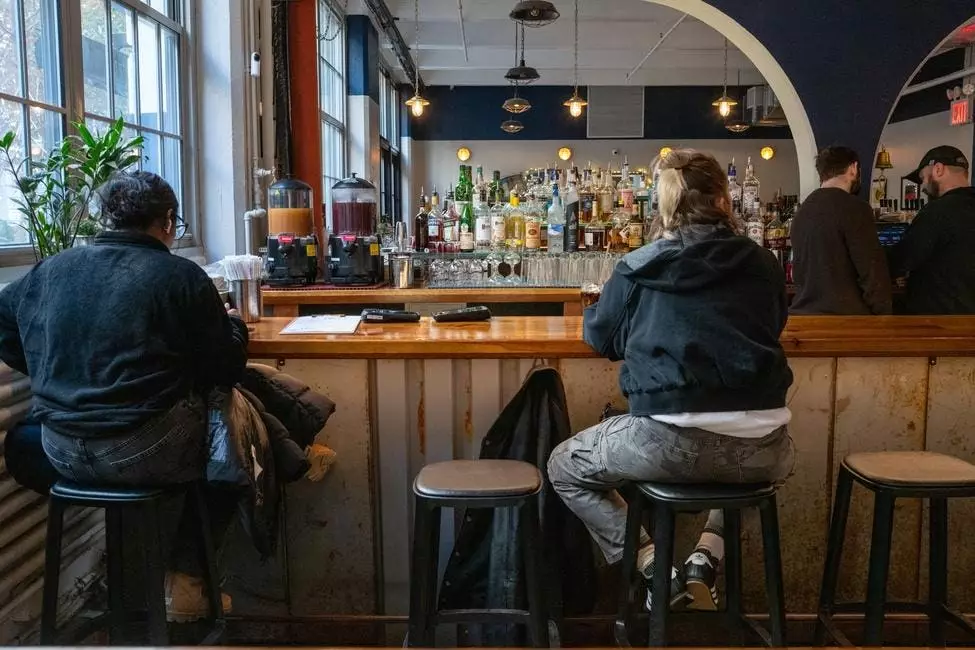Alcohol has historically held a prominent place in American society. It has been a fixture at celebrations, social gatherings, and even casual meetups. However, recent communications from health authorities, particularly U.S. Surgeon General Dr. Vivek Murthy, have prompted a reevaluation of this age-old relationship. Murthy’s advisory starkly illuminated the reality that alcohol is not just a social lubricant but a significant risk factor in numerous health issues, including cancer. With approximately 100,000 new cancer cases and 20,000 deaths attributed to alcohol annually, Murthy’s message aims to galvanize a shift in perception, urging Americans to recognize the serious implications of alcohol consumption.
One striking point in his advisory is that fewer than half of all Americans connect alcohol consumption with cancer risk. This gap in understanding highlights a critical need for enhanced public awareness and education. There are at least seven types of cancer directly linked to alcohol use, including breast, colorectal, and esophageal cancers. This alarming data proposes an urgent call to action, not just in personal choices, but also in governmental health communication strategies, including the reform of labeling on alcoholic beverages.
Concurrently, American drinking habits are undergoing significant evolution, particularly among younger generations. The COVID-19 pandemic disrupted traditional norms, increasing reliance on alcohol as a coping mechanism during lockdowns. Reports showed a more than 20% increase in heavy drinking among adults during this period. However, as societal norms realign post-pandemic, a growing movement led by Millennials and Gen Z is emerging—one that emphasizes reduced alcohol consumption or abstaining altogether. The startling statistic of a 61% intention to drink less among Gen Z individuals reflects a broader cultural shift advocating for mindful consumption and healthier living.
This movement is not merely a trend; it’s a transformative moment that prioritizes wellness over intoxication. Millennials, responding to a heightened awareness of health and mindfulness, have reportedly reduced their alcohol intake by 40%. The reasons for this shift resonate with deeper societal values: improving health, enhancing mental clarity, and even financial savings due to the high costs associated with traditional alcoholic beverages.
As alcohol loses its exclusive status in social contexts, a new paradigm is emerging—one grounded in inclusivity and wellness. The “sober curious” movement exemplifies this shift, encouraging individuals to interrogate their relationship with alcohol and explore alternative socialization techniques devoid of judgment. This newfound perspective is leading to an increase in mindful drinking, with surveys indicating that 41% of Americans plan to reduce their alcohol consumption, and 26% identify as mindful drinkers.
This transformation has opened the door to a flourishing market of alcohol-free options that challenge the status quo. Craft mocktails, zero-proof spirits, and non-alcoholic wines are gaining traction, offering a sophisticated yet sober alternative to traditional beverages. Bars and restaurants are adapting to these changes, curating drink menus that cater to non-drinkers, thus fostering an inclusive environment where social connection does not depend on alcohol consumption.
Economic pressures are also reshaping drinking habits. With inflation and rising living costs, many consumers are reconsidering their spending habits, leading to a reevaluation of expenditures related to alcohol. Just as during the Great Recession, when simpler and cheaper alcohol options surged, today’s financial constraints are nudging more individuals to seek alternatives to costly alcoholic drinks.
The health risks associated with alcohol consumption, particularly relating to cancer, signal a potential shift in cultural norms reminiscent of past anti-tobacco campaigns. As more individuals reconsider their drinking habits and opt for healthier alternatives, we may witness a seismic change in how beverages are consumed in social settings.
Ultimately, the Surgeon General’s advisory is not simply a warning; it is part of a much larger conversation about health, personal choice, and societal norms. This ongoing dialogue encourages Americans to reflect on what they drink and why they choose to drink it. As we navigate this evolving landscape, one thing remains clear: the rituals of toasting and connection will endure, whether with a traditional cocktail, a THC-infused beverage, or a refreshing sparkling water. The medium may have changed, but the underlying desire for community and celebration remains steadfast.


Leave a Reply